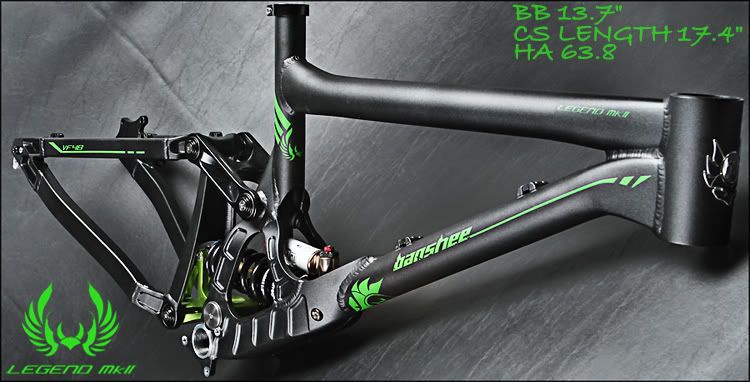Loic Bruni's 2015 World Champ's Lapierre
 Sunday, September 6, 2015 at 8:28AM
Sunday, September 6, 2015 at 8:28AM Nico takes us through the new DH Team bike.
2015 Lapierre DH Team Geometry

One of the major new products for 2015:
The Lapierre DH has been completely reworked to provide a platform with superior performance!
Developed around our new SLT suspension (Supra Link Technology), the new DH was created with 2 objectives in mind: performance and reliability.
All the experience of our engineers, plus the riders and the mechanics of Team Lapierre Gravity Republic, was put to use in order to evolve this new model. Directly inspired from moto-cross, the SLT kinematics provide 210mm of travel and offer a more sensitive and progressive suspension. This new bike is the response to the ever more exacting World Cup courses and the continuously more aggressive riding style of our team athletes.
100% made from Supreme 6 aluminium, the geometry for the new DH was developed following recommendations from Team Lapierre Gravity Republic riders. It was specially conceived for 27.5" wheels. This new standard was the unanimous choice of our riders at the end of the 2013 season, following Sam Blenkinsop’s 4th place in the Worlds at Pietermaritzburg and a 2nd place at the Leogang World Cup for Loic Bruni.
Number 1 in the UCI Gravity Team rankings at the beginning of the 2014 season, Team Lapierre Gravity Republic were put to work harder than ever to perfect their new weapon! Numerous tests were carried out on various prototypes, and proved that our new DH pushes the limits further than ever before. Loic Bruni, Loris Vergier and Finn Iles more than ever, they’ll be taking their place on the podium!
The right diameter for your riding
A few years ago, there was a real boom in 29" wheels, offering a proper alternative to the traditional 26". Nowadays, 27.5" is winning over most of the MTB world, as the ideal compromise. We at Lapierre have believed in this new wheel format from very early on, and we have been offering our OST+ platform in 27.5" for our Spicy and Zesty AM models since 2014. It is also making a name for itself on our brand-new X-Control. For 2015, our 27.5" range is expanding even more: for the first time, we are offering this diameter wheel on our DH models! This new standard has proved itself, with podium finishes at the Downhill World Cup for Loic Bruni and his fellow Team Lapierre Gravity Republic members.
Our choices in terms of wheel size and the emergence of new standards like 27.5" are in response to a need to optimise performances. Our goal is to provide you with the best bike for the way you ride, for your favourite terrain and for your build.
How does it work?
Everybody knows that the smaller the wheels, the more responsive the bike and its handling. The bigger they are, on the other hand, the better suited the bike is to speed and rolling over obstacles.
What's more, larger-diameter wheels have significant inertia (because their rotational mass is greater). You need enough inertia to keep the bike stable, but too much inertia will negatively affect its handling, its acceleration and its braking.
Therefore, we can distinguish 4 criteria that vary significantly with wheel diameter: weight, rollover, grip and acceleration.
For different assemblies with the same component types (wheel + tire):
- A 27.5" wheel is 5 % heavier than a 26" wheel
- A 29" wheel is 11 % heavier than a 26" wheel
A bike's rollover capacity is determined by the wheel's angle of attack to the obstacle. The bigger the wheel, the smaller the angle of attack, making it easier to roll over.
The bigger the wheel, the more contact surface between tire and ground (at the same inflation pressure), which therefore improves grip. Better grip means a bike that is easier to ride and has better braking.
It is wheel inertia that influences a bike’s acceleration performance: the bigger the wheels, the greater the rotational mass, the higher the inertia and, therefore, the slower the acceleration. As we can see in the graph below, a bike fitted with 29” wheels will have a higher top speed, but more time and energy will be needed to reach that speed.






